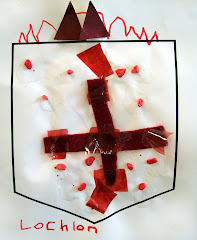Dear Parents,
With young children there are often behaviours or areas of
discussion which come up surrounding their body parts. This is perfectly normal
and age appropriate. Our strategies as teachers are to address these issues
with honest, accurate and age-appropriate responses. This article may be
of use to you should your child raise any issues with you.
If you have any further questions or concerns please do not
hesitate to email me on emckenzie@pac.edu.au
Teaching Children Body
Safety
1. Use a story as a tool
to begin a conversation with your child.
Add a couple of the books in the list below to your child's
bookshelf and read them periodically. Use them as a jumping off point to ask
questions to reinforce the message.
2. Teach children the
correct terms for their body parts.
Teach children the correct terms for their body parts as soon as
they can talk. If a child is touched inappropriately, they need to be able to
clearly communicate to you or anyone else in authority about what happened. The
correct name also lessens shame around sexuality. Can you imagine if your knee
was just referred to as "down there"?
3. Teach your child that
the parts that go under a swimsuit -- their penis, vagina, vulva, bottom,
breasts and nipples -- are called their ‘private parts."
No one touches their private parts except their parents, or a
doctor if the parent is present. They are not to touch anyone else's private
parts with any part of their body (hand, mouth, etc.)
4. Teach your child that
if someone asks to see or touch their private parts
...or shows your child their private parts, they must tell you or
another trusted adult straightaway. This is true no matter who the person is,
including a relative, sitter, or even another child. Just say "Sometimes
mom or dad helps you wipe when you poop, but no one else needs to touch you
there. And you can wipe yourself when you pee, so no one, not even mom or dad,
needs to touch you there. And now that you're three, you can wash yourself in
the bath, so no one needs to wash you there, either. So if anyone--anyone at
all--asks to see or touch your private parts, you must tell me about it."
5. Ask your child
questions to help them think through the possible scenarios:
- "What
would you do if someone touched you on your _______?"
- "Why
is it important to tell?
- "Who
would you tell?"
- "What
would you do if the person said it was 'our secret'?"
- "What
if they made a threat, like thy would hurt you or me?"
Encourage the child to say they would tell a parent or a teacher
right away because it’s their body.
6. Discuss the
importance of the rule “no secrets.”
Put this rule into practice : If someone, even a grandparent, says
something to your child like, “I’ll get you an ice cream later, but it will
be our secret,” firmly but politely say, “We don’t do secrets in our
family.” Then turn to your child and repeat, “Sometimes we have
surprises, but never secrets. We can tell each other everything.”
7. Raise your child with
basic body-safety and consent house rules,
Like "We
ask people before we touch their body" and "When someone says STOP!, we
stop."
8. Encourage your
children to tell you about things that happen to them that make them feel
scared, sad or uncomfortable.
Listen, reflect feelings, commiserate, hug. If children have an
open line of communication, they will be more inclined to alert you to
something inappropriate early on.
9. Never force children
to hug anyone, even relatives.
They need to know they're in charge of their own bodies. As one
mother wrote on my Facebook page: "We need to allow our kids the right
to refuse hugging or kissing anyone they don't want to, including family. I
think many of us were raised to comply with requested affection as kids. When
sexual abuse happens, those ingrained behaviors will only serve to paralyze
them instead of thwarting the event. (Sadly, I speak from experience on
this.)"
10. Don’t leave your
child with anyone, even your boyfriend, unless you completely trust him.
The good and bad news about abuse is that most of it,
statistically, is not perpetrated by strangers. It happens at the hands of
family members or the mother's boyfriend. Almost all the rest is perpetrated by
trusted intimates such as coaches, religious leaders or teachers. Bad news?
Yes, these are people your child trusts. But it’s good news because it’s a risk
you can usually avoid, if you trust your instincts and pay attention to your
child. This is just one of the many reasons that stepparents should never have
the responsibility of disciplining their partner's children.
11. Encourage your
children to trust their feelings
If something doesn’t feel right, the child should get away as soon
as possible and tell you about it. She needs to be told explicitly that it is
more important to stay safe and to trust herself than to be polite. It is okay
for her to question, disobey, and even run away from someone whose behavior is
making her acutely uncomfortable. Predators give signals; your child just needs
your support to trust herself in reading them.
Emma McKenzie
Teacher - Edgerley Room
Wellbeing Facilitator
